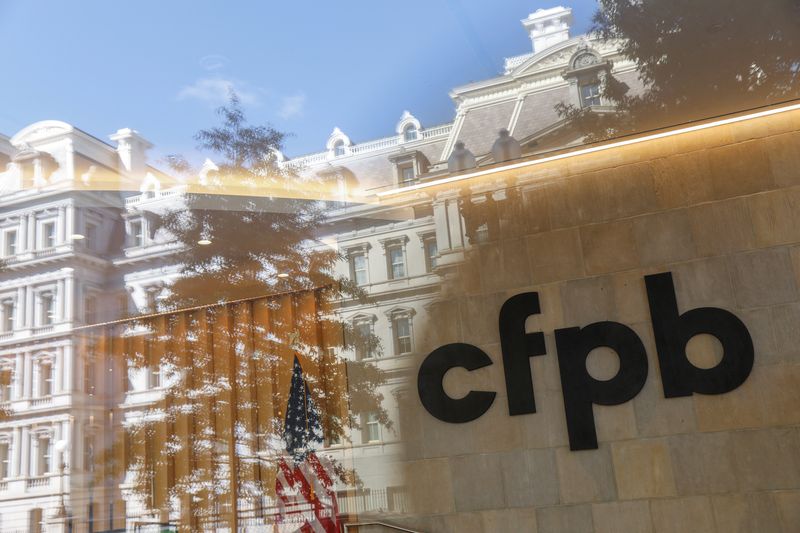By Hannah Lang
(Reuters) -The U.S. Consumer Financial Protection Bureau will apply some credit card consumer protection rules to buy now, pay later (BNPL) lenders, the agency said on Wednesday, in a bid to impose more oversight on the fast-growing sector.
BNPL providers such as Affirm, Klarna and Afterpay partner with retailers to finance customer purchases, which shoppers repay in installments. The sector has become a major source of credit, but lacks a federal oversight framework.
Under an interpretive rule issued by the CFPB on Wednesday, BNPL lenders will be required to investigate customer disputes, refund products that have been returned, and provide periodic billing statements - all requirements that credit card companies currently comply with under the Truth in Lending Act.
"Regardless of whether a shopper swipes a credit card or uses Buy Now, Pay Later, they are entitled to important consumer protections under longstanding laws and regulations already on the books," said CFPB Director Rohit Chopra in a statement.
Most major BNPL providers already voluntarily comply with credit card-like protections, but the new rule should offer consistency across the sector, a CFPB official told reporters.
The rule will only apply to the popular "pay in four" installment product, the official said. And BNPL providers will not be required to comply with some other credit card rules, such as assessing a consumer's ability to repay, the agency said.
BNPL loans drove $75 billion in online spending in 2023, up 14.3% from 2022, according to Adobe (NASDAQ:ADBE) Analytics.
According to a 2022 CFPB report, consumers often use BNPL as a substitute for conventional credit cards but consumer protection disclosures vary across major providers, and the loans can lead consumers to become over-indebted.
In a statement, a spokesperson for Klarna called the CFPB's move "a significant step forward in regulating BNPL," noting that it already operates at the standard called for in the rule.
A spokesperson for Affirm said it was "encouraged that the CFPB is promoting consistent industry standards, many of which already reflect how Affirm operates."
Under Chopra, the CFPB has cracked down on tech companies as they encroach on the traditional financial sector, proposing that it supervise payment services from Google (NASDAQ:GOOGL) and Apple (NASDAQ:AAPL) and scrutinizing how tech giants use consumer payment data.
The Financial Technology Association -- which represents some BNPL companies -- noted that while its members are committed to strong consumer protections, BNPL products are different from credit cards.

"We look forward to providing additional comments to the CFPB and distinguishing BNPL from products whose business models rely on revolving debt and high consumer fees," said CEO Penny Lee in a statement.
The interpretive rule is open to comments until Aug. 1 and will be effective in 60 days, a CFPB official said.